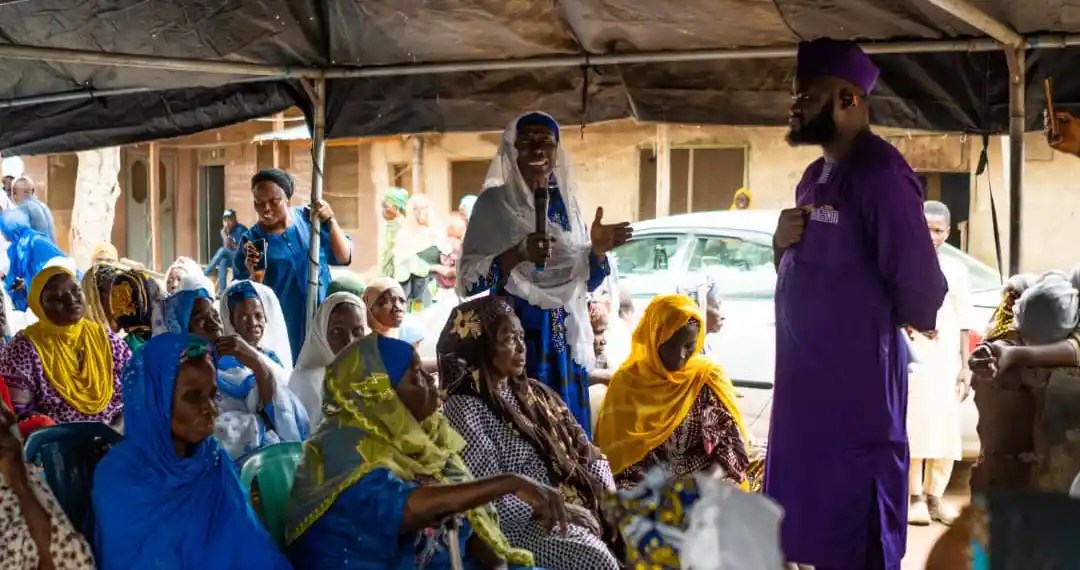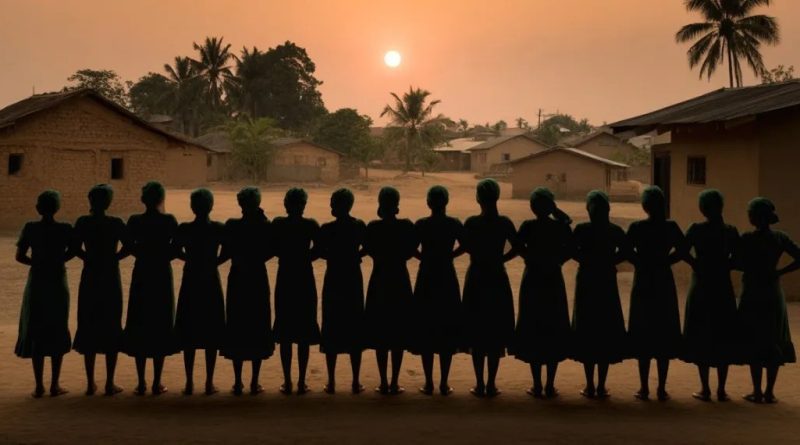Key developments in women’s rights, equality in Nigeria (September 2025 Edition)
September witnessed a range of stories and initiatives addressing women’s safety, peacebuilding, and empowerment across Nigeria.
From the efforts of women-led vigilante groups in Plateau State to the launch of a social charter in Kwara aimed at combating gender-based violence, the month highlighted the growing momentum for gender justice at all levels.
New manuals offering Islamic perspectives on the prevention of gender-based violence were also introduced, while reports highlighted the enduring trauma faced by rape survivors in Bauchi State and the socio-economic struggles of women breadwinners in the South-South region.
Additionally, PREMIUM TIMES examined the stigma surrounding infertility among Nigerian women, the barriers limiting women’s political participation, and renewed legislative efforts through the Gender Bill seeking to increase female representation in national and state assemblies.
Here are some of the most important gender-related issues from September.
![A silhouette of Nigerian women standing shoulder-to-shoulder [PHOTO CREDIT: ideogram]](https://i0.wp.com/media.premiumtimesng.com/wp-content/files/2025/10/a-photograph-of-a-silhouette-of-fifteen-_cHdXQNgFRkmsrB0VfWxwZw_BSi0HUMwSrGqgUxTOZdYrg.webp?resize=1140%2C570&ssl=1)
When Women Keep Watch: Inside Plateau’s women-led vigilantes, peace networks
The report highlights the efforts of women-led vigilante groups and peace networks in Plateau State, who are working to promote security and stability in their communities. These women are taking proactive steps to address insecurity, often in the face of limited resources and support, and have recorded a positive impact in their communities.

Beyond the Wound: Nigerian women bearing the weight of infertility stigma
In many Nigerian families, infertility carries significant cultural and social stigma, with women often bearing the brunt of blame.
The inability to conceive is met not with compassion but with suspicion, ridicule, and, often, rejection.
After marriage, there is almost an unspoken countdown: within nine months, a baby and sometimes, even twins or triplets, is expected to arrive. When that milestone passes without a child, the quiet pressure begins to creep in.
Even when medical tests reveal male factors contributing to infertility, societal pressure and ridicule are frequently targeted at women.

dRPC, partners launch manuals on the Islamic perspective on prevention of GBV
A manual on the Islamic perspective on preventing GBV has been launched. This includes the launch of the Abridged Version of the Al-Azhar Guide on the Islamic Perspective of GBV, the Hausa Translation of the Islamic Guide on GBV in Northern Nigeria, and the Guidelines on the Islamic Perspective for GBV Prevention for Survivors of Conflict-Related Sexual & GBV.

Double Duty: South-South Nigerian mothers struggle to provide and care
In Nigeria’s south-south region, many women carry a heavy burden as mothers who serve as the providers for their families. Behind their resilience lies a quiet struggle that affects the nutritional and emotional well-being of their children.
This report focuses on the experiences of female breadwinners, primarily those in informal employment, who, despite limited financial resources, managed to support their families.
They often engaged in informal work and, faced with limited financial support, stretched meagre earnings to keep their families afloat. But survival comes at a steep price — malnutrition, mental stress, and emotional gaps that ripple across generations.

Remanded for rape
A 60-year-old man identified as Ajayi Femi was arrested by the police in Lagos for allegedly raping a 24-year-old woman.
According to the police, the suspect has since been arraigned in court and remanded in prison pending the next adjourned date.
Similarly, a chief magistrate’s court in Awka, Anambra State, ordered the remand of a 33-year-old barber, Ihechukwu Korie, for the alleged rape of a minor who was his customer.
The defendant, who is facing one count of rape, was ordered to be remanded at the Awka correctional facility.

Bauchi rapists face prosecution as victims carry the scars
In Bauchi State, rapists face prosecution but victims bear the brunt.
While the legal process unfolds for the accused, the male victims are left to endure profound and lasting trauma. The report highlights the severe physical and psychological scars carried by the survivors.
It also details their ongoing struggles with pain, stigmatisation, as well as the pressure faced by their families to resolve it without making formal complaints.
Coalition condemns ‘continued exclusion’ of Natasha Akpoti-Uduaghan
Womanifesto, a coalition of women’s rights organisations, condemned what it describes as the “unconstitutional and continued exclusion” of Senator Natasha Akpoti-Uduaghan from the Nigerian Senate.
The coalition’s convener, Abiola Akiyode-Afolabi, in a statement, demanded the immediate reinstatement of the Kogi Central senator in full compliance with the court order.

Nigeria’s Gender Bill gives hope of increased women’s participation in parliament
In Nigeria, where women comprise almost half the population but remain largely invisible in decision-making, a new constitutional amendment bill has re-ignited debates about gender equity in governance.
Titled “A bill for an act to alter the provisions of the Constitution of the Federal Republic of Nigeria, 1999, to provide for seat reservation for women in the National and State Houses of Assembly; and for related matters,” the proposed legislation is one of the most ambitious attempts yet to correct the imbalance in women’s political representation.
The proposed changes would amend critical sections of the Nigerian Constitution, particularly Sections 48, 49, and 91, to guarantee women’s participation across all legislative levels.
For many women in Africa’s most populous country, the bill is an effort to restore balance in a country where women make up less than five per cent of the country’s lawmakers.

Kwara community launches social charter to combat gender-based violence
The Agbarere community in Kwara State has launched a social charter aimed at protecting women and girls, promoting gender equality, and holding perpetrators accountable.
Over 250 participants, including traditional rulers, religious leaders, women, men, and youth representatives, security agencies, and civil society actors, attended the launch event.


